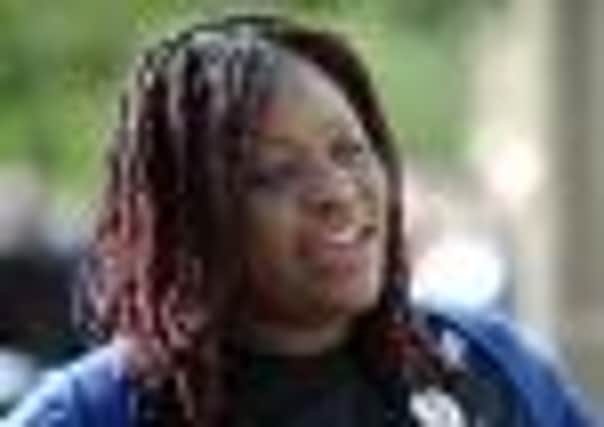Sister beginning legal battle over ex-paratrooper body blunder


The body of Christopher Alder, 37, was discovered in a mortuary at Hull Royal Infirmary when relatives of a Nigerian woman, Grace Kamara, 77, arrived to prepare her body for burial on November 4 last year and were told it could not be found.
It is thought Mr Alder’s corpse was found inside a body bag bearing Mrs Kamara’s name.
Advertisement
Hide AdAdvertisement
Hide AdIt later emerged that Mrs Kamara had been buried in Mr Alder’s grave after it was exhumed as part of a continuing police investigation into the scandal.
Now, pending the outcome of the criminal inquiry, the human rights campaign group, Liberty, has lodged a protective claim with Central London County Court on behalf of Mr Alder’s sister Janet.
The claim allows her to pursue possible civil proceedings against Hull Council, which ran the city mortuary when the wrong body was released in November 2000, and Hull and East Yorkshire Hospitals NHS Trust, which took charge before Mrs Kamara’s abortive funeral last year.
It is understood any civil case may be based on potential breaches of Article Three and Article Eight of the European Convention on Human Rights. Article Three prohibits torture, or inhuman or degrading treatment or punishment, while Article Eight covers the right to respect for private and family life.
Advertisement
Hide AdAdvertisement
Hide AdLast November, Liberty secured Miss Alder’s first real breakthrough in her campaign for justice for her brother when the Government apologised and agreed to pay compensation after admitting that Mr Alder’s treatment – before the burial scandal – breached the European Convention on Human Rights.
The father-of-two died in the custody suite of Queens Gardens police station in Hull in the early hours of April 1, 1998, with his arms handcuffed behind his back and his trousers around his ankles. A coroner’s jury found he was unlawfully killed.
Commenting on the action over the burial blunder, Liberty’s legal officer Corinna Ferguson said: “Clearly something went very wrong in this disturbing and tragic case.
“Liberty has now issued a claim under the Human Rights Act to protect Ms Alder’s interests, ensuring that she has the chance to fight for justice in the civil courts once the criminal proceedings have ended.
Advertisement
Hide AdAdvertisement
Hide Ad“This follows on from our successful case in the European Court of Human Rights, which resulted in a historic apology from the Government for the horrific treatment that Christopher Alder suffered and serious flaws in the subsequent investigation.”
Miss Alder, 50, told the Yorkshire Post that the latest development would mark a major step in establishing the exact circumstances surrounding the burial error, although she admitted that the legal fight is taking its toll.
She added: “The claim that I’m putting forward is based on finding out who is responsible for preventing the burial of my brother in 2000. His body has been in the hands of the funeral directors, the mortuary staff and the hospital, the NHS.
“It’s been over a year now and I know nothing more today than I knew on November 5 last year. It’s very, very stressful to keep something like this going on with no answers. I want those responsible for preventing Christopher’s burial to be held accountable.”
Advertisement
Hide AdAdvertisement
Hide AdA spokesman for the trust said: “We can’t comment until the police investigation is concluded.”
The council’s corporate director for city services, Trish Dalby, said: “We are unable to comment until the criminal investigations are complete.”
The Government apology was lodged with the European Court of Human Rights in Strasbourg after Miss Alder alleged there had been a violation of substantive aspects of Article Three and Article 14, which prohibits discrimination. She also alleged “a breach of the procedural guarantees” of Article Three along with Article Two, the right to life.